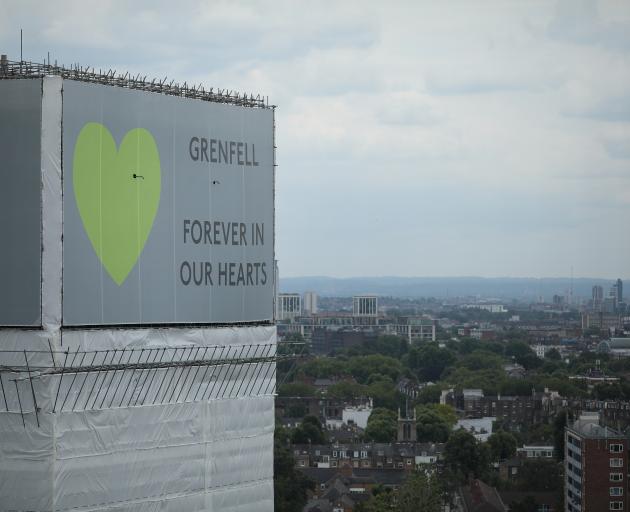
The move follows about 200 property owners across Dunedin failing to get them in time in the past year.
The council will issue fines and "notices to fix" earlier than it has in the past when buildings are unwarranted.
The changes have been mostly welcomed by the Otago branch of the Property Council New Zealand, but have concerned a Dunedin commercial building owner.
Council building compliance officer Cory Barnes said the council had already been considering the issue when the Grenfell incident occurred, but "that definitely brought into line why we were doing this".
"We're doing it for the safety of occupants of Dunedin buildings."
The 24-storey Grenfell Tower fire in Britain in June last year caused 72 deaths.
The rapid spread of the fire was blamed on the building's flammable exterior cladding,
Mr Barnes said the changes meant commercial property owners would need to act more quickly to make sure their buildings met required standards.
The Building Act 2004 required owners of buildings to supply councils with an annual building warrant of fitness (BWOF).
Its purpose was to make sure systems listed in the compliance schedule, such as sprinklers and lifts, were working as they should.
At present, the process gave building owners up to three months with an unwarranted building before a notice to fix was issued, and close to six months before they received an infringement notice.
Under the new process, from January 1 next year owners would receive reminder letters one month before and one month after the BWOF expiry date.
At two months after expiry, owners would receive a notice to fix and a $250 fine for failing to supply a BWOF.
If no progress had been made by four months after the expiry date, there would be a further fine of $1000 for failing to comply with the notice to fix.
The council had written to owners of the 1500 buildings affected to advise them of the change.
Mr Barnes said, in special circumstances, compliance officers had discretion to grant extensions of time or to hold off issuing infringement notices.
Property Council New Zealand Otago Chapter chairman Geoff Thomas said it was good to see it would be enforced sensibly.
"It's also good to see they have a discretion for special circumstances."
Mr Thomas said one of the reasons 200 building owners had been late in the past 12 months could have been because it was difficult to hire the required qualified people needed to sign off compliance.
Each aspect of building safety, such as lifts and fire safety, required different people.
However, he hoped that situation might be one in which council compliance officers had discretion to grant time extensions.
Dunedin building owner Stephen Macknight said the council had to be careful.
Rather than act like building police, it needed to work with owners.
Requirements were not always clear and parties needed to work together.












